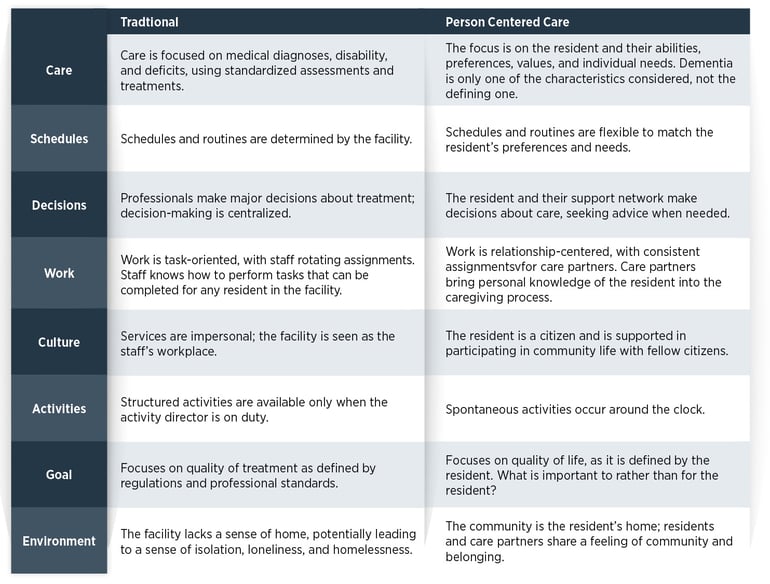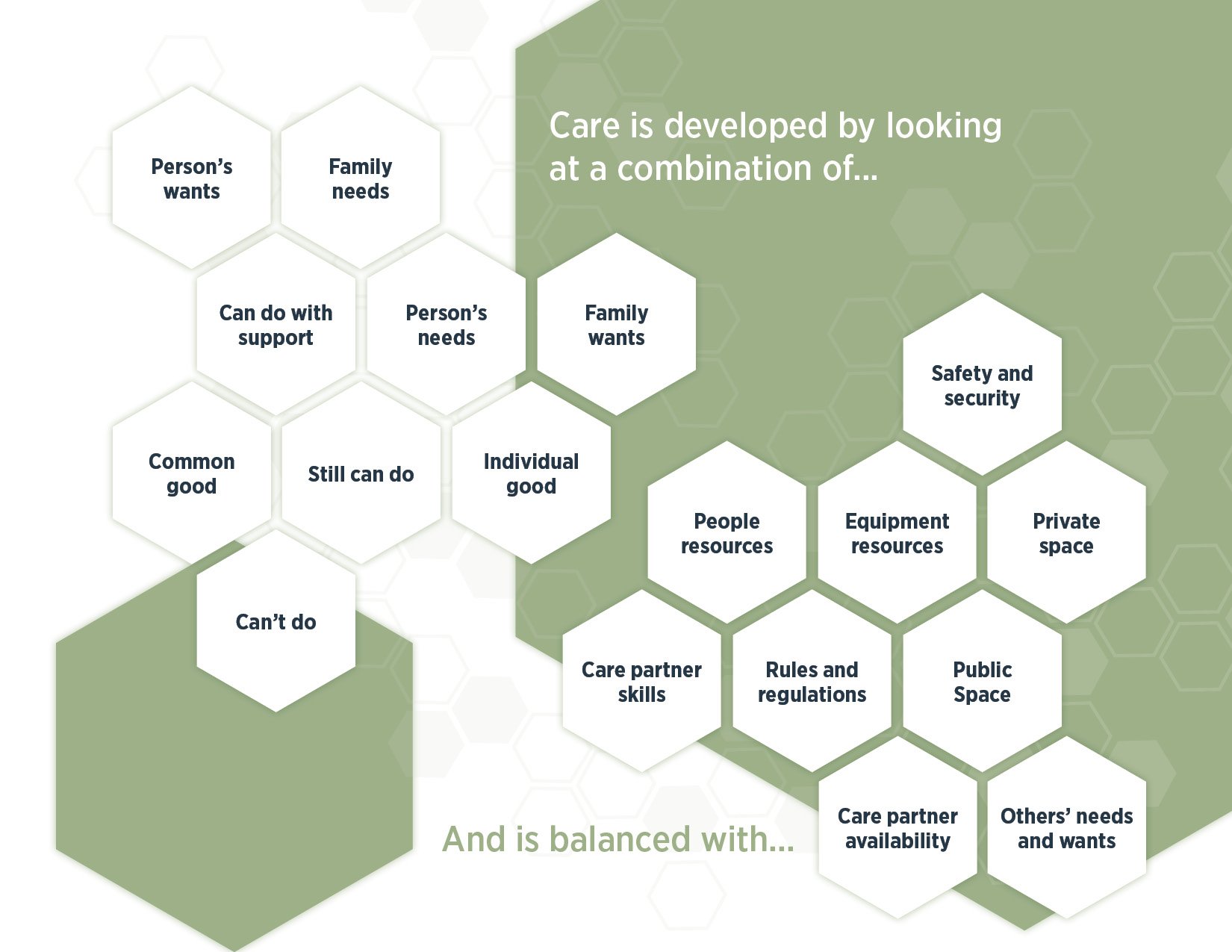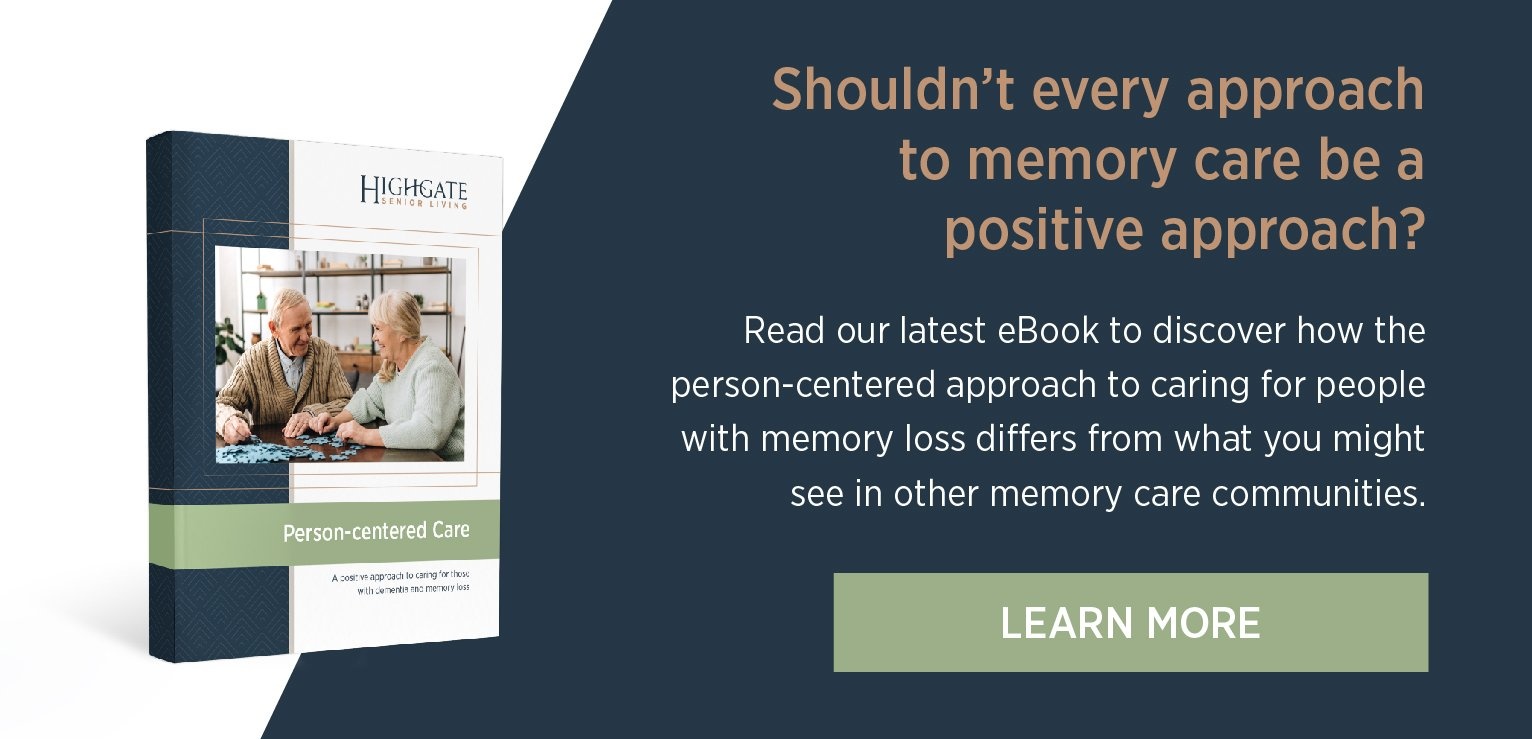.jpg?width=770&name=iStock-809822820(1).jpg)
If you’re looking for a memory care community for a loved one, you might be wondering what type of care you should be looking for.
Every year, researchers develop a deeper understanding of dementia — its causes, diagnosis, treatment, and care.
Dementia is a complex disease and the complex interplay between the affects changes in cognitive health have and the affects of other factors (like overall health, individual psychology, and the environment) are now understood to have equal impact on those with memory loss. What does this mean? It’s not only changes in cognitive function (how we learn, think, reason, remember, problem solve and make decisions) that lead to how a person with memory loss adapts, but the environment a person with memory loss lives in can equally affect their abilities.
Essentially, the environment has as much effect on the brain as changes to the brain has on a person’s abilities. We also know that dementia does not universally progress in a linear fashion, and most importantly, it progresses differently from person to person.
These new understandings of dementia have led to a new way to approach dementia care. Championed by internationally recognized dementia practitioner, educator, and founder of the Positive Approach to Care Teepa Snow, person-centered care is a positive approach to caring for those with dementia and memory loss that is built around the needs of the individual and emphasizes care relationships.
Before we dive deeper into this innovative approach to memory care, let’s take a look at the traditional model.
Comparing the Traditional Dementia Care Model to a Person-centered Approach
Here is a comparison of the fundamental differences in these two approaches.

How Medical Conditions Are Treated in a Person-centered Approach
A positive approach to person-centered care is driven by personal preferences, values, personality traits, and the individual’s life story. Here’s a chart that better describes the philosophy of care behind a person-centered program.

Source: Teepa Snow, Positive Approach, LLC
A Positive Approach to Memory Care
As a loved one of someone living with dementia and memory loss, it’s helpful to understand how care providers learn about and support each person’s holistic needs and preferences. To move from traditional to person-centered care requires a culture change, and not all memory care communities have yet moved in this direction.
To learn how to look for signs a memory care community offers positive, person-centered care, download our eBook Person-centered Care: A Positive Approach to Caring for Those with Dementia and Memory Loss.






